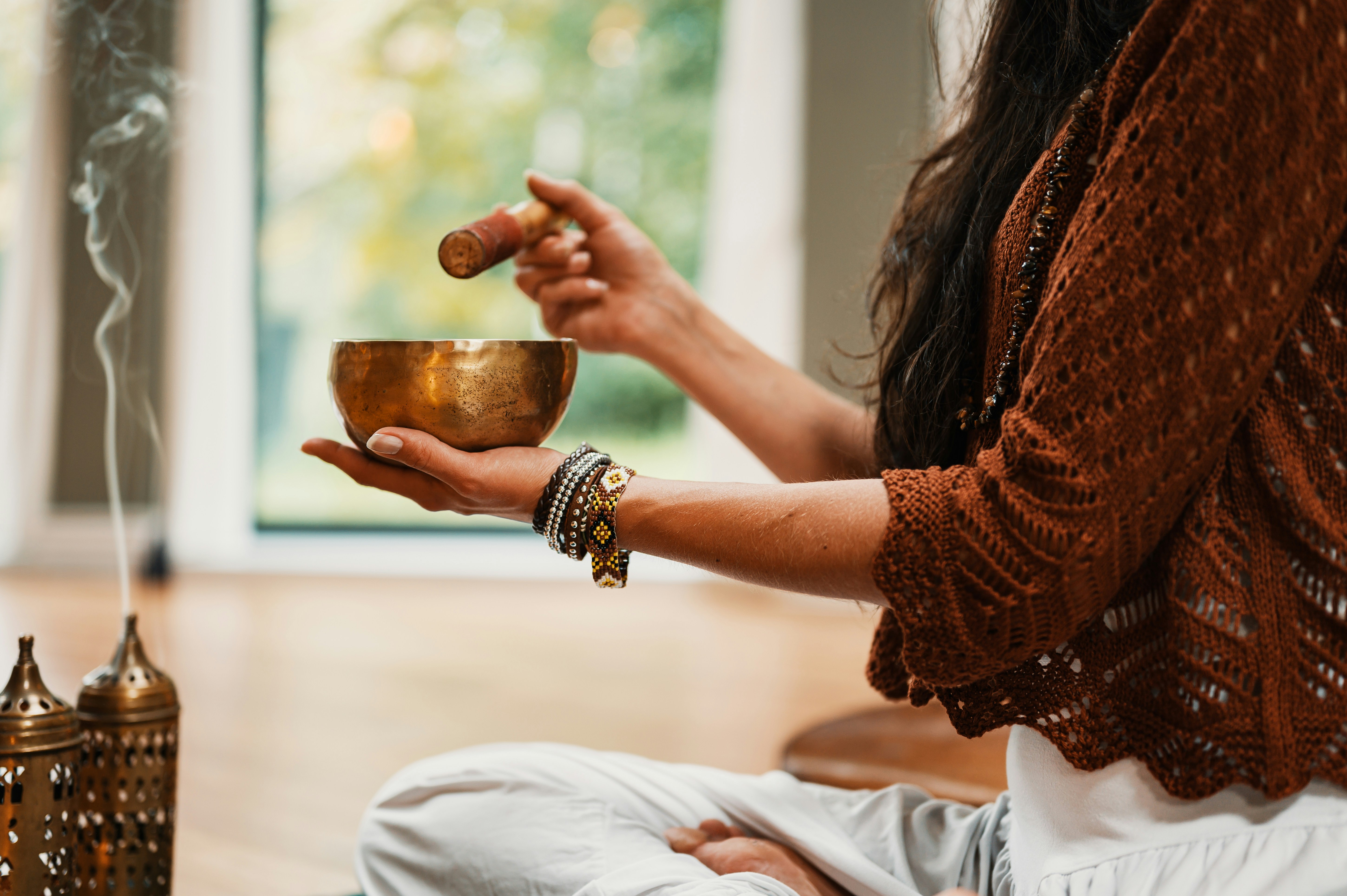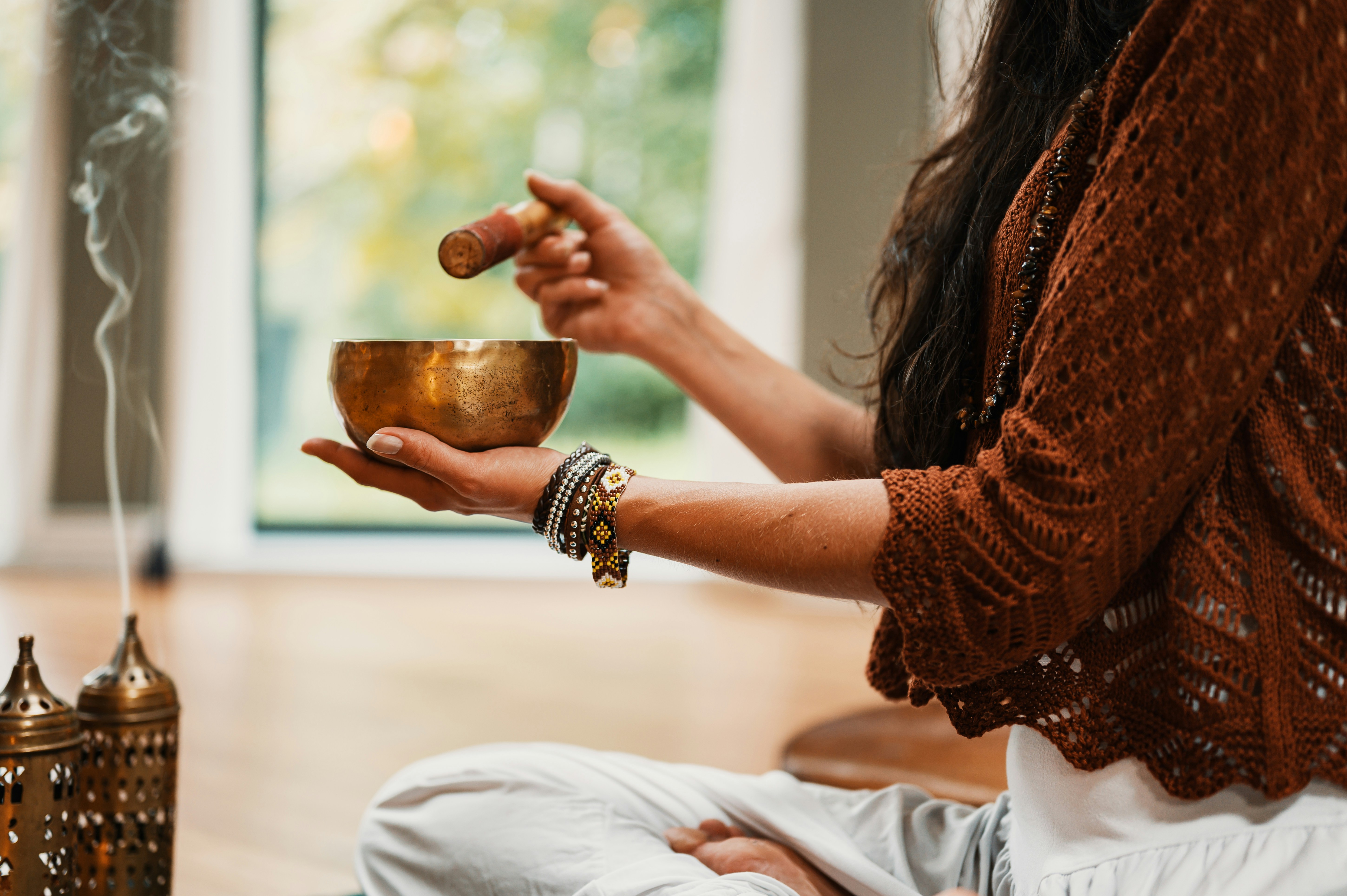One of the key benefits of mindfulness meditation is its ability to help you cultivate a deep sense of inner peace and tranquility. In today’s fast-paced world, it’s easy to get caught up in the chaos and demands of daily life. Our minds are constantly bombarded with thoughts, worries, and distractions, leaving us feeling overwhelmed and stressed.
However, through the practice of mindfulness meditation, you can learn to quiet the mind and find a sense of calm amidst the storm. By bringing your attention to the present moment and observing your thoughts and emotions without judgment, you can create a space of stillness within yourself. This state of inner peace allows you to navigate life’s challenges with greater clarity and equanimity.
Research has shown that regular mindfulness meditation practice can have a profound impact on your mental and emotional well-being. It has been found to reduce symptoms of anxiety and depression, improve focus and concentration, and enhance overall emotional resilience. By cultivating a mindful awareness of your thoughts and emotions, you can gain a greater understanding of yourself and develop healthier ways of responding to stress and adversity.
Furthermore, mindfulness meditation can also have significant physical benefits. It has been shown to reduce blood pressure, improve sleep quality, and boost the immune system. When you practice mindfulness, you activate the body’s relaxation response, which counteracts the effects of the stress response. This can lead to a reduction in physical tension and an overall sense of well-being.
So how can you incorporate mindfulness meditation into your daily life? It’s actually quite simple. All you need is a quiet space, a comfortable posture, and a few minutes of uninterrupted time. You can start by focusing on your breath, bringing your attention to the sensation of the breath as it enters and leaves your body. Whenever your mind wanders, gently bring it back to the breath, without judgment or frustration.
As you continue to practice mindfulness meditation, you may choose to explore other techniques, such as body scan meditations or loving-kindness meditations. The key is to approach your practice with an open mind and a sense of curiosity. Remember, mindfulness is not about achieving a specific outcome or reaching a state of perfection. It is simply about being present and fully engaged in the here and now.
In conclusion, mindfulness meditation is a powerful tool for finding inner peace and tranquility in a chaotic world. By incorporating this practice into your daily life, you can cultivate a greater sense of self-awareness, emotional well-being, and physical health. So why not give it a try? Take a few moments each day to sit, breathe, and be present. Your mind, body, and spirit will thank you.
What is Mindfulness Meditation?
Mindfulness meditation is a practice that involves focusing your attention on the present moment, without judgment. It is about being fully aware of your thoughts, feelings, bodily sensations, and the environment around you. By cultivating this awareness, you can learn to observe your thoughts and emotions without getting caught up in them.
Many people find that mindfulness meditation helps them develop a greater sense of clarity, calmness, and overall well-being. It can be practiced in various ways, such as sitting in silence, walking, or even while engaging in everyday activities.
When practicing mindfulness meditation, the goal is not to empty your mind or stop thinking altogether. Instead, it is about acknowledging and accepting whatever arises in your mind, whether it is positive or negative. By doing so, you can develop a non-reactive and non-judgmental attitude towards your thoughts and emotions.
One of the key principles of mindfulness meditation is to bring your attention back to the present moment whenever your mind wanders. This can be done by focusing on your breath, sensations in your body, or any other anchor that helps you stay grounded in the present.
Over time, regular practice of mindfulness meditation can lead to a greater sense of self-awareness and a deeper understanding of your own mind. It can also help you develop skills to better manage stress, anxiety, and other challenging emotions.
Research has shown that mindfulness meditation can have a positive impact on both mental and physical health. It has been found to reduce symptoms of depression, anxiety, and chronic pain. It can also improve sleep, boost immune function, and enhance overall well-being.
While mindfulness meditation can be practiced on your own, many people find it helpful to learn from an experienced teacher or participate in a group setting. This can provide guidance, support, and a sense of community as you embark on your mindfulness journey.
6. Improved Physical Health
The benefits of mindfulness meditation extend beyond mental and emotional well-being to include physical health. Research has shown that regular meditation practice can lower blood pressure, reduce inflammation, and strengthen the immune system. By reducing stress and promoting relaxation, mindfulness meditation can have a positive impact on overall physical health and well-being.
7. Enhanced Resilience
Practicing mindfulness meditation can help build resilience, the ability to bounce back from adversity. By developing an awareness of your thoughts and emotions, you can better navigate challenging situations and cope with stress. Mindfulness meditation teaches you to observe your thoughts without judgment, allowing you to respond to difficulties with clarity and composure.
8. Improved Relationships
Mindfulness meditation can also improve your relationships with others. By cultivating self-awareness and self-compassion, you can develop a greater capacity for empathy and understanding. This can lead to more effective communication, deeper connections, and stronger relationships with family, friends, and colleagues.
9. Increased Creativity
Engaging in mindfulness meditation can stimulate creativity and enhance problem-solving skills. By quieting the mind and focusing on the present moment, you can access new perspectives and insights. This can unlock your creative potential and lead to innovative thinking and fresh ideas.
10. Greater Overall Well-being
Ultimately, the practice of mindfulness meditation can contribute to a greater overall sense of well-being. By cultivating mindfulness, you can develop a deeper connection to yourself, others, and the world around you. This can lead to a more meaningful and fulfilling life, characterized by gratitude, joy, and a sense of purpose.
In conclusion, the benefits of mindfulness meditation are wide-ranging and impactful. By incorporating regular meditation practice into your daily routine, you can experience reduced stress and anxiety, improved emotional well-being, enhanced focus and concentration, better sleep, increased self-acceptance and compassion, improved physical health, enhanced resilience, improved relationships, increased creativity, and greater overall well-being. Whether you are new to meditation or have been practicing for years, mindfulness meditation is a powerful tool for personal growth and transformation.
Getting Started with Mindfulness Meditation
Now that you understand the benefits of mindfulness meditation, you may be wondering how to get started. Here are some tips to help you begin your practice:
1. Find a Quiet Space
Choose a quiet space where you can practice without distractions. It could be a corner of your home, a park, or any other place where you feel comfortable and at ease. Creating a dedicated space for your meditation practice can help signal to your mind and body that it’s time to relax and be present.
2. Set Aside Time
Set aside a specific time each day for your meditation practice. It could be in the morning, during your lunch break, or before bed. Consistency is key, so try to stick to your chosen time as much as possible. By establishing a regular routine, you are more likely to make meditation a habit and reap the long-term benefits.
3. Start with Short Sessions
When starting out, it’s best to begin with shorter meditation sessions, such as 5 or 10 minutes. As you become more comfortable with the practice, you can gradually increase the duration of your sessions. Remember, the goal is not to achieve a certain length of time, but rather to cultivate a regular practice that works for you.
4. Focus on Your Breath
A simple way to start your mindfulness meditation practice is to focus on your breath. Close your eyes and bring your attention to your breath as it goes in and out. Notice the sensation of the breath entering and leaving your body. If your mind wanders, gently guide your attention back to your breath. This anchor can help ground you in the present moment and cultivate a sense of calm and awareness.
5. Be Kind to Yourself
Remember, mindfulness meditation is a practice, and it’s natural to have thoughts and distractions arise during your sessions. When this happens, gently bring your attention back to your breath or whatever anchor you are using for your practice. Be kind and patient with yourself as you develop your meditation skills. It’s important to approach your practice with a non-judgmental attitude, allowing yourself to observe your thoughts and emotions without getting caught up in them. Over time, you will build resilience and the ability to stay present amidst the ups and downs of life.
By following these tips and committing to a regular mindfulness meditation practice, you can cultivate a greater sense of calm, clarity, and well-being in your life. Remember, the benefits of mindfulness extend beyond your meditation cushion and can positively impact your relationships, work, and overall sense of happiness. So why not give it a try? Take a few moments each day to be still, breathe, and connect with the present moment. Your mind and body will thank you.
Enter your email to get the Latest Updated Exploring News and Topics
Discover more from atozexplore.com
Subscribe to get the latest posts sent to your email.







